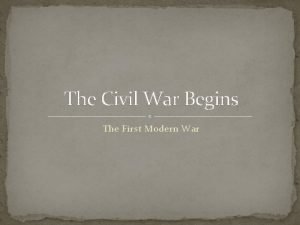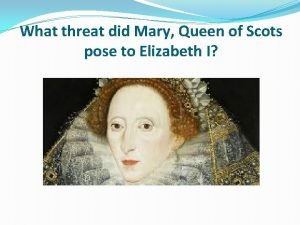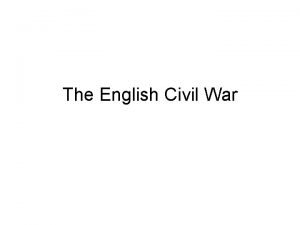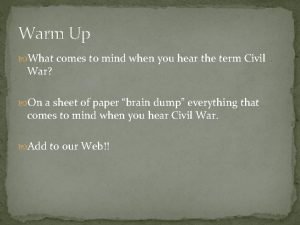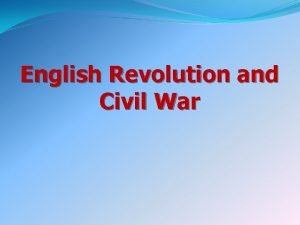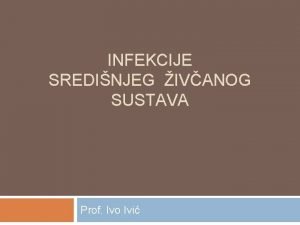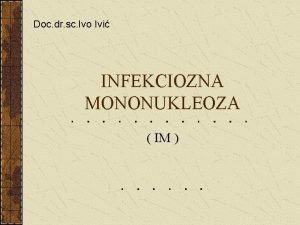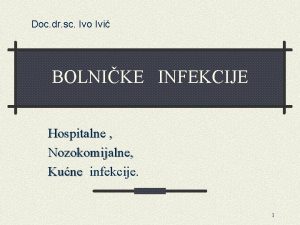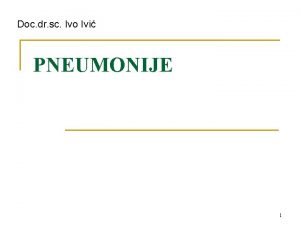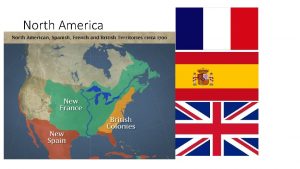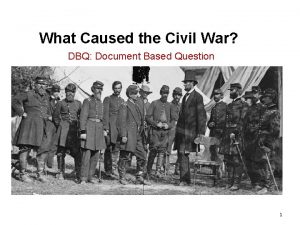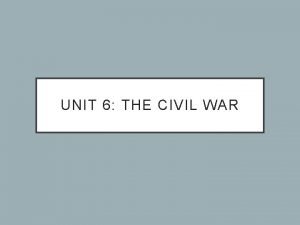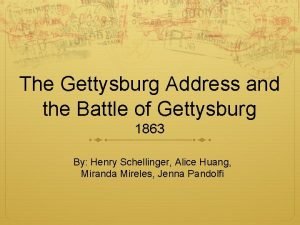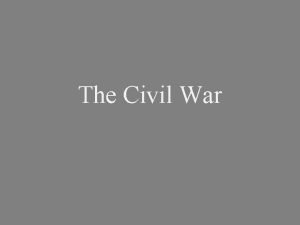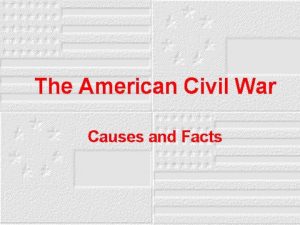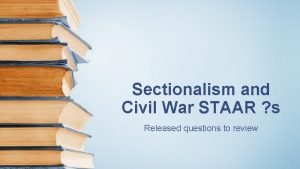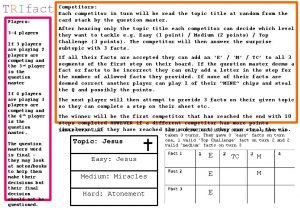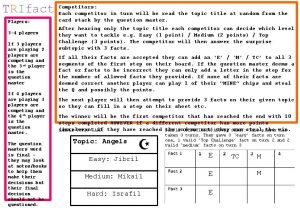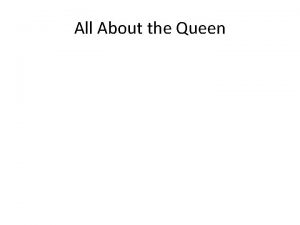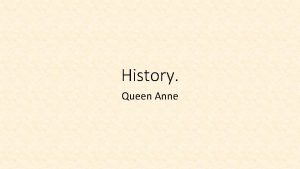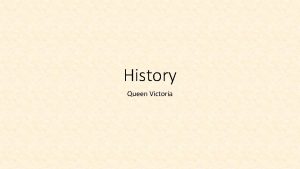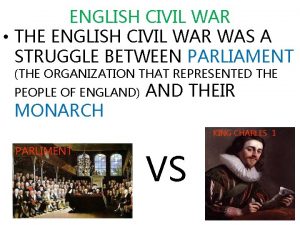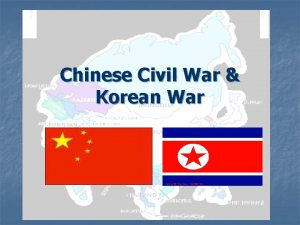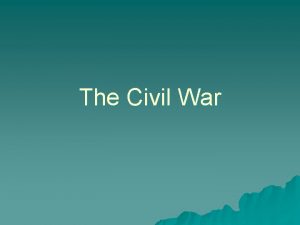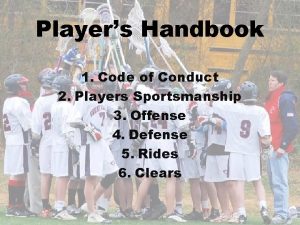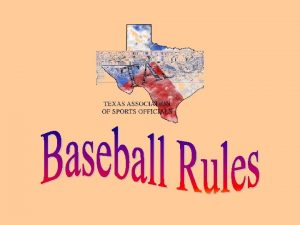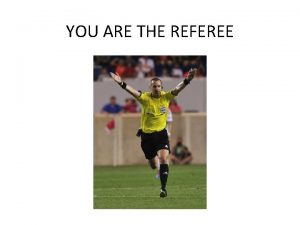English Civil War The players James IVI Queen



























- Slides: 27

English Civil War

The players • James I/VI – Queen Elizabeth’s heir, and king of Scotland England • Charles I – James’ son and heir, ultimately executed • Oliver Cromwell – Leader of the Parliamentary forces and a strict puritan, overthrows Charles I • Charles II – Charles’ son and heir, who takes back the throne and restores the monarchy • James II – Charles I’s son, Charles II’s brother, is removed from the throne

Tudors and Stuarts Lady Jane Grey

James I • James Stuart was the King of England, Ireland Scotland, • When he took the throne of England in 1567 he began the Stuart dynasty, which ruled until 1707.

Mary, Queen of Scots • James’ mother was Mary, Queen of Scots. She inherited the throne as a baby. • She was forced to give up the throne when James was 13 months old, and he was crowned and regents ruled Scotland for him until he was 17

Mary • Mary was Henry VIII’s niece. • The Catholics in the family did not recognize his marriage to Anne Boleyn, and considered Elizabeth illegitimate. • They thought that the line of inheritance made Mary, Queen of Scots next in line after Mary Tudor.

Mary, Queen of Scots • Her personal life had made her unwanted in Scotland, and she was removed from the throne. • She then plotted to kill Elizabeth I and take her throne, so Elizabeth had to execute her.

Mary Queen of Scots James V + Mary of Guise Mary Queen of Scots Francis II Henry Stewart, Lord Darnley James Hepburn, Lord Bothwell

Elizabeth I • Elizabeth had no heir, so she made James, her nearest relative and Mary, Queen of Scots’ son her heir. • He took the throne with the promise to maintain the Protestant faith and power over England.

James I • James was married to Anne of Denmark, and they had four children, one of whom would grow up to be Charles I, King of England Scotland.

James I • James was a great believer in the power of kings. • He believed in the Divine Right of Kings • He believed that he was to rule unchallenged. • He made great use of something called the Star Chamber.

The Star Chamber

Religious struggles • James was a staunch Protestant and was set on uniformity in religion in Scotland England. • He commissioned the King James Bible and punished Catholic dissenters strongly. • He also tried to reign in Protestant practices that varied from his own.

Parliament • Because James felt that he was the most powerful man in the kingdom he was prone to clashes with Parliament. • When they would not do what he wanted, say declare war on the Austrians and Spanish when they invaded his son-inlaw’s country, Bohemia, he would dismiss the entire Parliament and do what he wanted.

Charles I • When James I died in 1625, his son Charles I became king • Charles was “worse” than James: – Charles believed in divine right & absolute monarchy; refused to discuss ideas with Parliament—only called Parliament when he needed money

Charles I • Charles was incredibly unpopular. – He married a French princess who was Catholic. – He let his best friend, George Villiers, Lord Buckingham make and control foreign policy. – Villiers made some really unpopular, bad choices, leading unsuccessful battles with Spain and France.

Charles I • Parliament wanted to impeach Villiers, but Charles wouldn’t let them. • Every time they brought it up, he just dissolved Parliament. • Eventually he HAD to call them back because he was broke. He needed money from the government to pay for another battle he wanted to fight to defend Protestants in France.

Charles I • They said they would not give him the money unless he signed the “Petition of Right”. • The “Petition of Right” said; 1. there should be no taxation without the consent of Parliament; 2. there should be no imprisonment without cause shown; 3. there should be no billeting of soldiers or sailors upon householders against their will; 4. there should be no martial law to punish ordinary offences by sailors or soldiers.

Escalation! First Parliament. Refuse to give tonnage and poundage* to Charles I for life. Second Parliamentimpeached Buckinghamdissolved by king Third Parliament. Petition of Right-dissolved by king, leader, John Eliot imprisoned in Tower of London 1629 -died in Tower in 1632.

Crisis • Henry Burton, John Bastwick and William Prynne were critical of Charles and his bishops. • Sentenced by Star Chamber to imprisonment for life as well as branding and the loss of their EARS.

English Civil War • Charles I tries to get Scottish to follow Anglican Prayer Book • Scots get mad, form an army, threaten to invade England • Charles needs money to fight the Scots • He can only get money by calling Parliament • Parliament hasn’t been called for 11 years

The Long Parliament • Parliament meets from 16401653 • Parliament tries to pass laws limiting the power of the King • This makes Charles mad • He tries to arrest several leaders of Parliament, but they escaped* • People of London get angry • Charles flees to Northern England to raise an army

English Civil War • 1642 -1649 • 2 sides • Royalists or Cavaliers were loyal to the King • Wealthy nobles, Flashy, long haired • Roundheads • Were Puritan supporters of Parliament • Working class, middle class and Puritans

Oliver Cromwell and the New Model Army • Parliament forms a professional group of soldiers in February of 1645 • Very well disciplined • Promotions based on merit, not class • Most members had strong Puritan values • No drinking, cussing, women, gambling, etc. • Cavaliers eventually beaten by New Model Army


Click on image for a link to an excerpt from the Cromwell, 1970 of the execution.

 Civil war first modern war
Civil war first modern war Toward civil war lesson 3 secession and war
Toward civil war lesson 3 secession and war How did queen elizabeth 1 die
How did queen elizabeth 1 die English civil wars timeline
English civil wars timeline English civil war mind map
English civil war mind map Causes of the english civil war
Causes of the english civil war Mile živčić
Mile živčić Connected ivi
Connected ivi Znak tronošca
Znak tronošca Ivo ivi
Ivo ivi Ivo ivi
Ivo ivi Ivi s
Ivi s Ivo ivi
Ivo ivi Ivo ivi
Ivo ivi Dispnoična
Dispnoična Staphylocus
Staphylocus Metaivi
Metaivi International land conservation network
International land conservation network Civil rights webquest
Civil rights webquest Ohio river valley 1763
Ohio river valley 1763 Samuel de champlain apush definition
Samuel de champlain apush definition Causes of the civil war dbq
Causes of the civil war dbq Map of fort sumter
Map of fort sumter Shermans neckties
Shermans neckties Gettysburg battle
Gettysburg battle What led to civil war
What led to civil war Civil war facts
Civil war facts Civil war staar questions
Civil war staar questions
